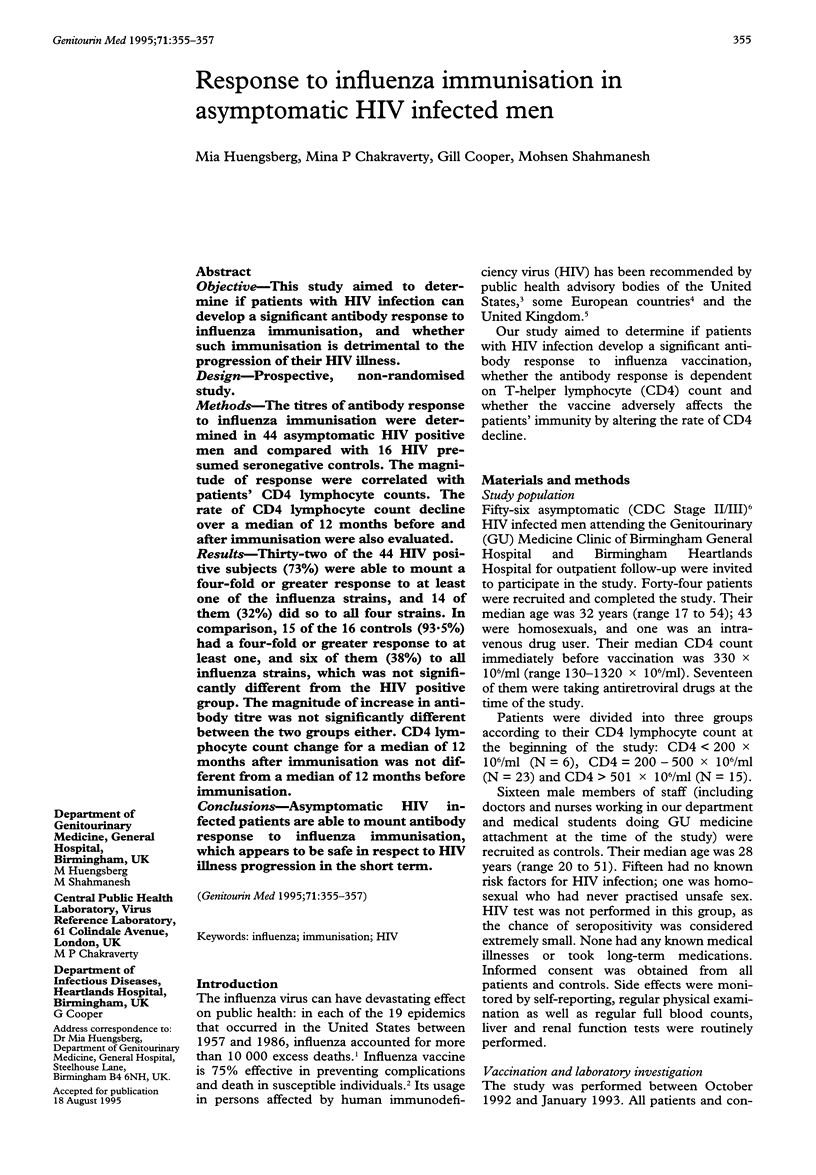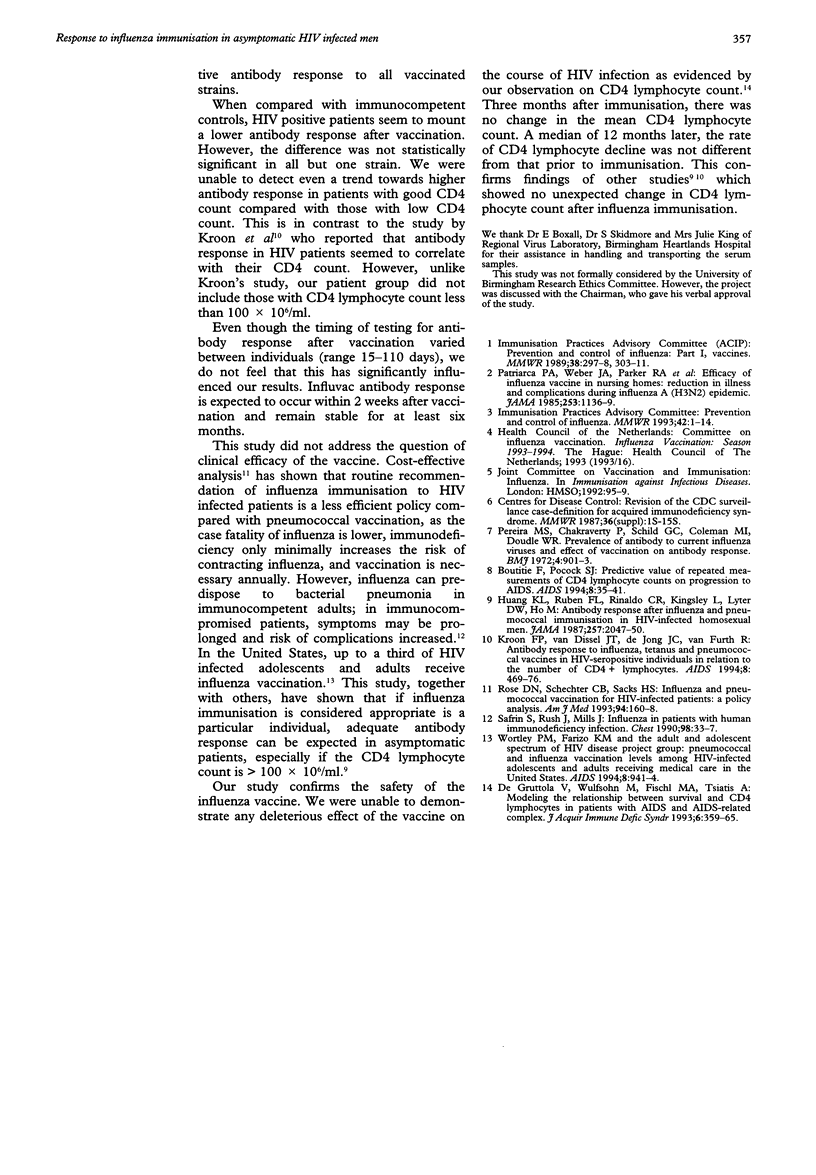Abstract
OBJECTIVE--This study aimed to determine if patients with HIV infection can develop a significant antibody response to influenza immunisation, and whether such immunisation is detrimental to the progression of their HIV illness. DESIGN--Prospective, non-randomised study. METHODS--The titres of antibody response to influenza immunisation were determined in 44 asymptomatic HIV positive men and compared with 16 HIV presumed seronegative controls. The magnitude of response were correlated with patients' CD4 lymphocyte counts. The rate of CD4 lymphocyte count decline over a median of 12 months before and after immunisation were also evaluated. RESULTS--Thirty-two of the 44 HIV positive subjects (73%) were able to mount a four-fold or greater response to at least one of the influenza strains, and 14 of them (32%) did so to all four strains. In comparison, 15 of the 16 controls (93.5%) had a four-fold or greater response to at least one, and six of them (38%) to all influenza strains, which was not significantly different from the HIV positive group. The magnitude of increase in antibody titre was not significantly different between the two groups either. CD4 lymphocyte count change for a median of 12 months after immunisation was not different from a median of 12 months before immunisation. CONCLUSIONS--Asymptomatic HIV infected patients are able to mount antibody response to influenza immunisation, which appears to be safe in respect to HIV illness progression in the short term.
Full text
PDF


Selected References
These references are in PubMed. This may not be the complete list of references from this article.
- Boutitie F., Pocock S. J. Predictive value of repeated measurements of CD4 lymphocyte counts on progression to AIDS. AIDS. 1994 Jan;8(1):35–41. doi: 10.1097/00002030-199401000-00006. [DOI] [PubMed] [Google Scholar]
- De Gruttola V., Wulfsohn M., Fischl M. A., Tsiatis A. Modeling the relationship between survival and CD4 lymphocytes in patients with AIDS and AIDS-related complex. J Acquir Immune Defic Syndr. 1993 Apr;6(4):359–365. [PubMed] [Google Scholar]
- Huang K. L., Ruben F. L., Rinaldo C. R., Jr, Kingsley L., Lyter D. W., Ho M. Antibody responses after influenza and pneumococcal immunization in HIV-infected homosexual men. JAMA. 1987 Apr 17;257(15):2047–2050. [PubMed] [Google Scholar]
- Kroon F. P., van Dissel J. T., de Jong J. C., van Furth R. Antibody response to influenza, tetanus and pneumococcal vaccines in HIV-seropositive individuals in relation to the number of CD4+ lymphocytes. AIDS. 1994 Apr;8(4):469–476. doi: 10.1097/00002030-199404000-00008. [DOI] [PubMed] [Google Scholar]
- Patriarca P. A., Weber J. A., Parker R. A., Hall W. N., Kendal A. P., Bregman D. J., Schonberger L. B. Efficacy of influenza vaccine in nursing homes. Reduction in illness and complications during an influenza A (H3N2) epidemic. JAMA. 1985 Feb 22;253(8):1136–1139. [PubMed] [Google Scholar]
- Rose D. N., Schechter C. B., Sacks H. S. Influenza and pneumococcal vaccination of HIV-infected patients: a policy analysis. Am J Med. 1993 Feb;94(2):160–168. doi: 10.1016/0002-9343(93)90178-r. [DOI] [PubMed] [Google Scholar]
- Wortley P. M., Farizo K. M. Pneumococcal and influenza vaccination levels among HIV-infected adolescents and adults receiving medical care in the United States. Adult and Adolescent Spectrum of HIV Disease Project Group. AIDS. 1994 Jul;8(7):941–944. doi: 10.1097/00002030-199407000-00010. [DOI] [PubMed] [Google Scholar]


